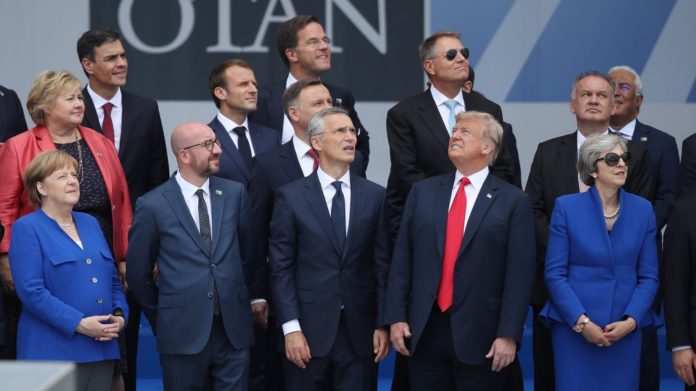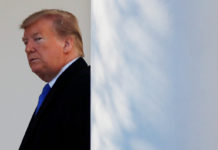Not long after President Donald Trump woke up Wednesday morning in Brussels, he arrived at a public breakfast and took aim at his latest favorite target for ridicule, NATO allies, for not boosting their defense spending.
“Many countries are not paying what they should,” he said. “And, frankly, many countries owe us a tremendous amount of money for many years back, where they’re delinquent, as far as I’m concerned, because the United States has had to pay for them. So if you go back 10 or 20 years, you’ll just add it all up. It’s massive amounts of money is owed.”
The president’s message was obviously intended jolt the other 28 NATO members and put them on-notice that the White House will not back down from demands to pay more for the military alliance.
But it was jarring for another reason: NATO doesn’t work this way.
The North Atlantic Treaty Organization, which has been a keystone of global security since its formation in 1949, does not involve a membership that collects dues. There is no annual subscription.
“President Trump does not appear to understand that the 2% of GDP spending by the allies is a guideline, not a mandate,” said James Stavridis, retired U.S. Navy admiral who commanded all NATO forces and is now dean of the Fletcher School of Law and Diplomacy at Tufts University. “He tends to liken the situation to a need to hound golfers for not paying their dues at the local country club. While it makes sense to pressure the Europeans to hit the 2% goal, we must avoid splitting the alliance over the issue.”
Daniel Fried, a former Assistant Secretary of State for European and Eurasian Affairs and Ambassador to Poland, said Trump appears intent on rattling NATO members. Before Trump embarked for Brussels, he criticized the allies on Twitter at dawn, and then reemphasized the point again about an hour later. He delivered a similar message in front of television cameras on the White House lawn, before pecking out another rough tweet while aboard Air Force One as it soared eastward above the Atlantic Ocean.
“The question is whether the president is doing this to make NATO better, or if he doing it because he doesn’t like NATO and wants to see its demise?” Fried said. “The latter is a depressing question to ponder when it involves a sitting commander-in-chief.”
NATO’s defining Article 5 principle for collective defense states that an attack on one nation is an attack on them all and was invoked only once, by North American and European allies after…










